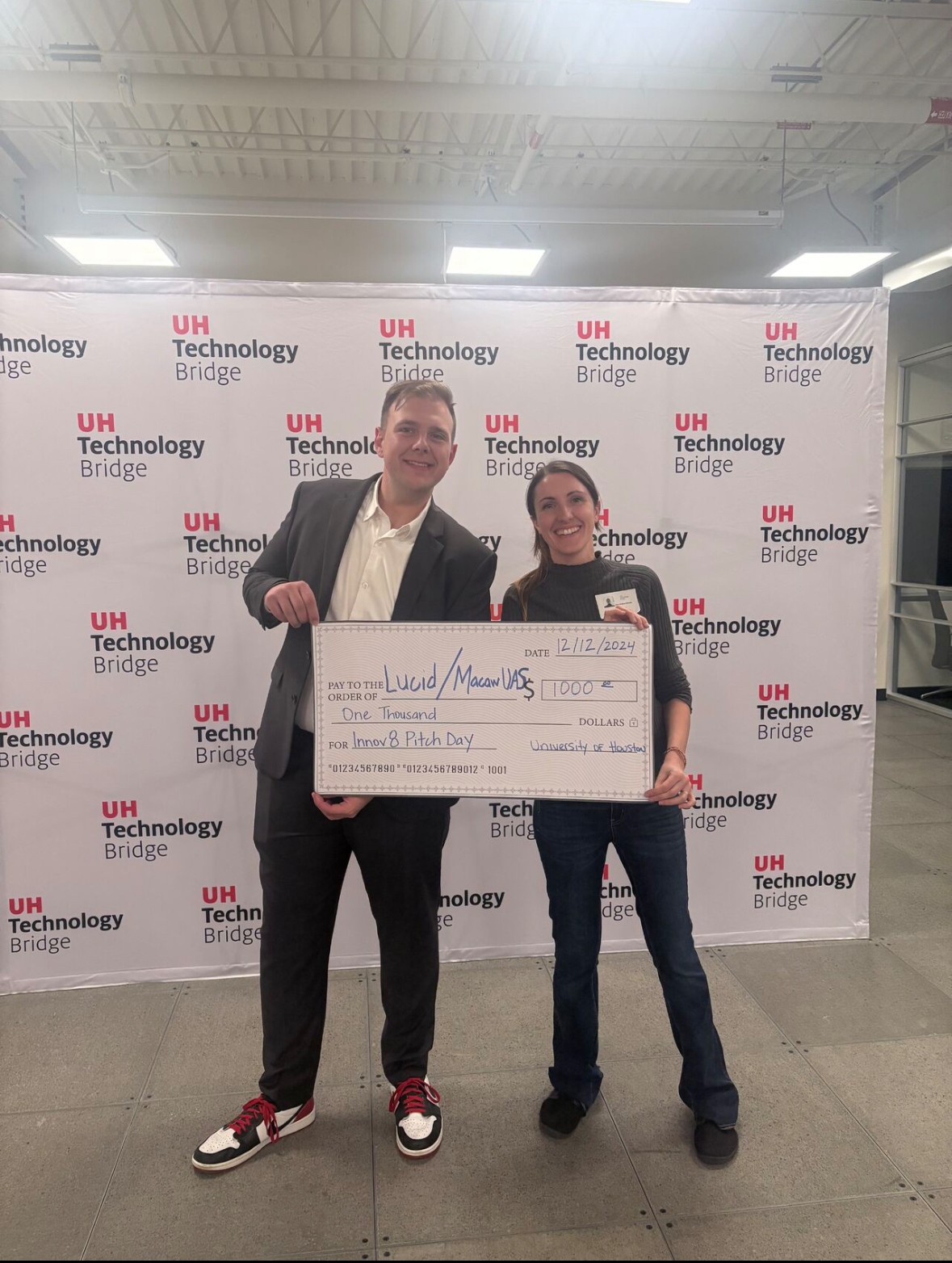After securing second place at the Fall 2024 Innov8Hub Pitch Day competition, Alexandra Ulinski is continuing to advance her entrepreneurial vision.
Ulinski, a research technician supervisor in UH’s Earth and Atmospheric Sciences department, founded Macaw UAS to build atmospheric sampling drones for air-pollution monitoring. The MACAW platform supports multi-instrument payloads, real-time data, and air quality sensors, offering researchers a fully NDAA-compliant, Blue UAS solution.
Ulinski shared some updates on how things have been going for Macaw UAS since last December’s Pitch Day.
“2025 has been busy,” she said. “I’ve been working with different mentors to refine my investor pitch and continue shaping the full system design.”
That system not only includes the drone itself, but also attachable scientific modules and accompanying ground infrastructure. With patents pending, Ulinski is currently in dialogue with the University of Houston’s intellectual property committee while simultaneously exploring early-stage funding opportunities.
“I’m looking for small opportunities for prototype funding,” she noted. “Even if a full prototype isn’t immediately feasible, I’m aiming to develop a power and data system module that can be tested on an existing drone platform.”
Ulinski’s long-term aspirations for Macaw UAS go far beyond environmental applications. While the technology is rooted in her academic expertise, she envisions broad utility in sectors such as emergency response, national security, and industrial inspection.
“I definitely see broader applications for the drone,” she explained. “What we’re building could be used to detect hazardous chemicals, radiation, or biological agents—critical tools for emergency response or defense. And even without scientific instruments, these drones could serve as U.S.-manufactured tools for standard surveillance and inspection operations.”
To scale the platform, Ulinski is actively exploring partnerships with established drone manufacturers and service providers.
“One potential path is to partner with a drone manufacturer,” she said. “I would develop the modules and provide supplementary elements, like the ground station. At the same time, I’d like to connect with companies that could become early adopters—organizations already using drones who might benefit from a more specialized solution.”
Over the next six to twelve months, Ulinski’s primary goals include completing a prototype of the power and data modules and initiating development of an instrument module. Even without a fully completed prototype, these components will allow for key testing and validation steps. She is also actively assembling an advisory committee and is looking for mentors with expertise in hardware development, commercialization, and regulatory strategy.
With a strong foundation in scientific research and growing support from the Innov8Hub and the UH community, Ulinski is positioning Macaw UAS not just as a research tool—but as a versatile, next-generation drone platform ready to address real-world challenges across multiple industries.
